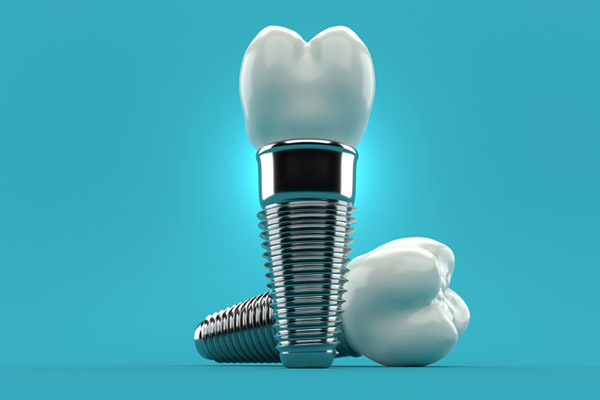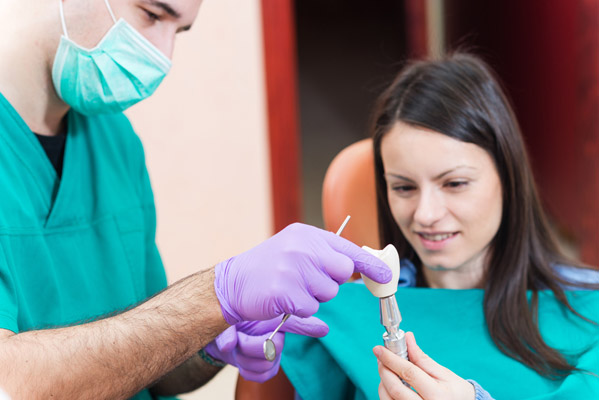5 Types of Dental Emergencies

Dental emergencies are unexpected and can be very stressful. Continue reading to learn about five common situations that are considered a dental emergency.
5 Common dental emergencies
Outlined below are accurate overviews of five types of dental emergencies that commonly occur:
A dislodged tooth
Injuries happen all the time due to sports or accidents. When a tooth becomes completely dislodged from the mouth, it is important to immediately seek help. This type of dental emergency is one that should be taken very seriously. If the tooth is accessible, it is advised to keep it in milk or use a denture glue to put it back into place until a dentist can attend to it.
Unbearable tooth pain
Toothaches are unlike any other pain, which is why they tend to be considered dental emergencies. Most toothaches are the result of a severe infection in the tooth that may or may not have affected the nerves. When a toothache is not responding to over-the-counter pain relievers, the attention of a dentist may be required. X-rays and an evaluation will likely reveal an infection that requires treatment of some kind. In most cases, when a toothache is this severe, a root canal is the only choice.
Broken jaw
Jaw injuries are some of the most severe and painful as the jaw is responsible for quite a bit within the facial region. When the jaw becomes broken or severely injured, it is considered a dental emergency in which immediate attention should be given. Symptoms of a broken jaw include severe pain in the face, neck, cheeks, or head region. Additionally, there will likely be severe swelling, difficulty chewing or opening the mouth at all, and an inability to speak.
A dentist will be able to prescribe pain medication to reduce discomfort. For mild to moderate breaks or dislocations, the dentist may recommend a muscle relaxer, pain medication, and a change in diet as the jaw can heal on its own. However, more severe cases may require the placement of metal plates or rewiring of the jaw, both of which require a surgical procedure in which it is likely that an additional specialist will need to be brought on.
A severely broken, cracked, or chipped tooth
Accidents and injuries can occur at any given time, as they are unpredictable in most cases. Of course, those who play sports may be at higher risk of developing an injury to the mouth. A lot of injuries to the mouth result in a broken tooth or one that is severely cracked or chipped, both of which can be detrimental to one's oral health.
When a tooth becomes broken, it automatically becomes at risk of falling out or developing an infection. Additionally, if a tooth is chipped or cracked, the risk is higher of experiencing an additional injury if soft tissue rubs up against it. Bacterial growth is also much more likely to occur when a tooth has experienced a crack or a chip because there is more exposure.
Small cracks or chips may not be considered dental emergencies, but they should be addressed by a general dentist in a timely fashion. However, if the chip, crack, or break is moderate to severe, it is highly recommended to visit a dentist to avoid any further damage or pain. It is likely that a bonding procedure will take place for temporary measures. Later on, a general dentist may opt for alternative treatment, such as veneer or crown placement, depending on the location of the injured tooth.
Abscess
When a tooth is severely infected, an abscess might occur, which is considered a dental emergency. A dental abscess is a pocket that is filled with pus. It is usually within a tooth or right near it, which will be more noticeable to the naked eye. Symptoms of a dental abscess typically include severe pain, foul-smelling breath, and pus coming from the infected tooth.
Dental abscesses are treated by having a dentist drain the pus so that it is carefully removed from the tooth and the entire oral cavity. In most cases, the infected tooth will also need additional treatment, such as a root canal. This will save the tooth so that it is still viable, allowing for proper function.
The bottom line
If you are still curious about what is considered a dental emergency, get in touch with our general dentistry office. To find out more or to get scheduled for an emergency dentistry appointment, contact us today.
Request an appointment here: https://www.grandvalleydentistry.com or call Grand Valley Dentistry at (616) 259-6046 for an appointment in our Allendale Charter Twp office.
Check out what others are saying about our dental services on Yelp: Dental Emergencies in Allendale Charter Twp, MI.
Recent Posts
An emergency dentist can provide swift treatment for urgent dental issues, allowing patients to enjoy faster relief from pain and other serious symptoms. If an emergency with your teeth, or a loved one's teeth, arises you will likely be scrambling for help. While you should call 911 if a situation seems life-threatening or if other…
When dentures break, patients may have difficulty with daily activities, such as speaking and eating. Do not wait until your next regular dental appointment to address this issue. If you cannot be seen in a timely manner, an emergency dentist can help patients restore their dentures as quickly as possible.Dentures are usually durable but do…
An emergency dentist is usually a general dentist who has the staff, resources, hours, and willingness to treat dental emergencies. A dental emergency may include a range of mouth injuries or developing oral health concerns. It can be helpful to fully understand when to see an emergency dentist for prompt treatment.When an individual has an…
While it is always a good idea to have an emergency dentist on call, individuals can avoid a dental emergency and all the pain, cost and hassle that comes with one by taking preventative measures. In many cases, this simply entails adopting healthy lifestyle habits.Dental emergencies, which range from toothache to fractured teeth to abscesses,…


